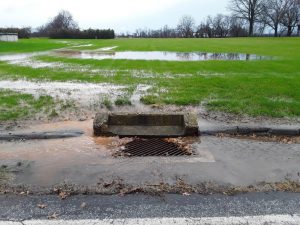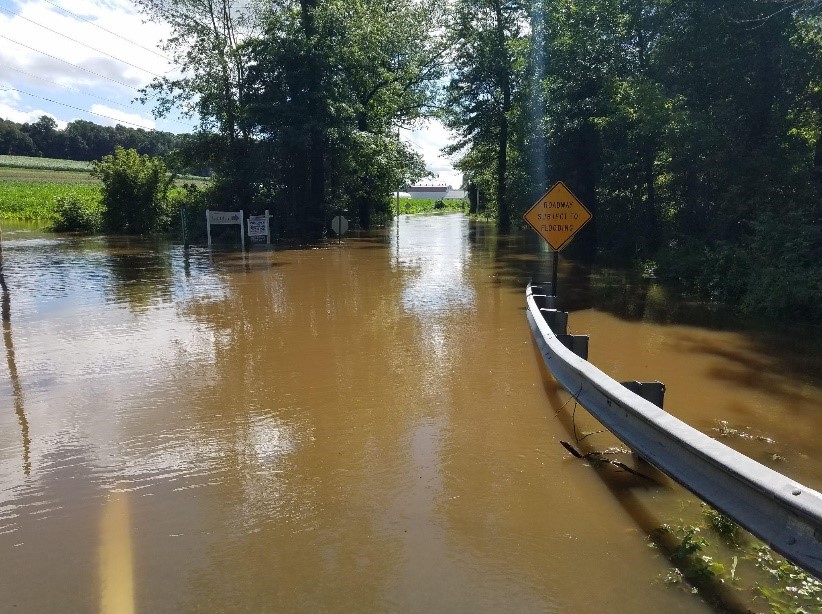In recent years, flooding has become increasingly dangerous and devastating in Chester County and across the country. In fact, flooding is the most prevalent natural disaster in Pennsylvania, causing over $1 million worth of property damage annually. Chester county has 2,300 miles of streams and around 250 problem areas of known flooding. Many smaller flooding issues cause erosion and flooded basements on residential properties. Although these statistics are alarming, there are ways residents can help prevent flooding and be good stormwater neighbors to each other.
Being a good stormwater neighbor means carrying out practices on your property to help mitigate flooding, while not disrupting the property and boundaries of your neighbors. The most important thing to remember is that stormwater does not follow property lines. Even if you and your neighbors have fences the outflow of water will go wherever it wants. This can lead to neighbor disputes, which should be handled with cooperation and open communication. To avoid conflicts, familiarize yourself with how rainwater and snow melt flow onto your property. Look for entrances, exits and problem areas where flooding occurs. Flow should be redirected into vegetated areas that slow down the water and infiltrate water and pollutants. If you live near a stream, drainage swale, or pond, you can plant a riparian buffer along the edge of the water. This will prevent erosion on your property and improve water quality.
An easy place to start is to ensure that all the existing stormwater structures on your property are functioning properly. Check if drains from driveways and downspouts are clear of debris and flowing properly. Make sure not to hose off pathways and try sweeping instead, so debris doesn’t flow into your drains. Clean stormwater grates in front of your home after cutting the grass or raking leaves. Yard waste blocks stormwater grates and reduces oxygen in the water which causes dead zones. Finally, be sure that culverts are not blocked by trash or woody debris. 
Some other techniques to try at home include planting rain gardens, installing rain barrels and creating dry wells to infiltrate water to recharge groundwater. Simple practices, maintenance and repairs like these can go a long way to reduce flooding on your property. If your community works together, flood prevention is possible.
To learn more about what you can do at home visit www.cwmp.org and check out the up to date calendar of events, webinars and more.




